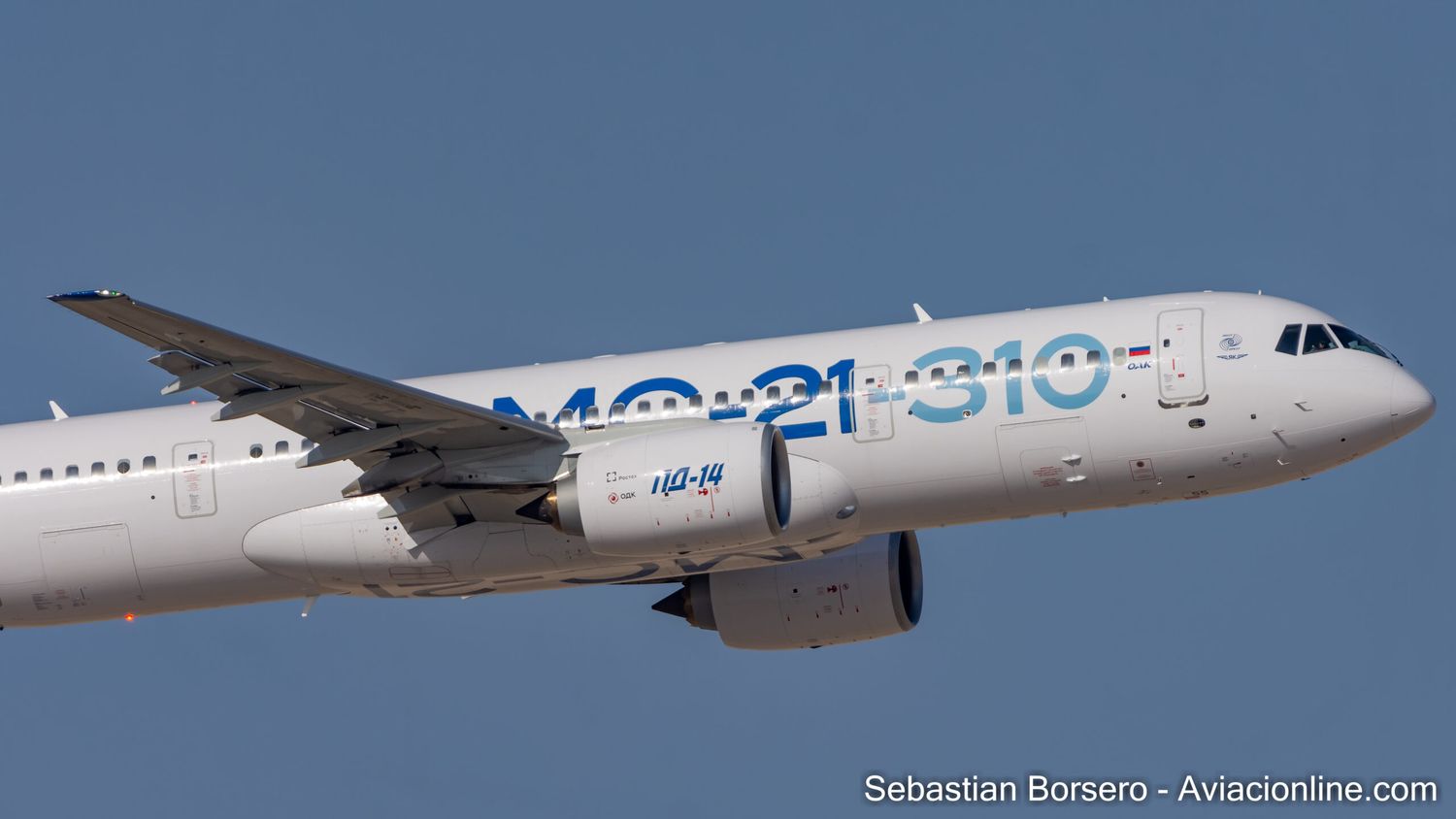In a further milestone in the process of import substitution in the aviation industry that the Russian Federation aims to complete, manufacturer company Irkut received approval for some major design changes to its MC-21 aircraft, including the installation of local components, from the Federal Air Transport Agency of Russia (Rosaviatsia).
The documents confirming the modification of the aircraft’s certificate were delivered to the Ministry of Industry and Trade yesterday. With the approval, Irkut has the green light to move forward with the implementation of the Russian PD-14 engine, developed by the United Engine Corporation (UEC), and the domestically produced composite wing.
According to Russian sources, during 2022 the Irkut MC-21 successfully completed more than 160 test flights using the PD-14 engine. In addition, the wing underwent a test cycle and obtained positive endurance results.
Through official decree number 1693 of 25 June 2022, the Russian government had approved a comprehensive air transport development programme until 2030. «In the face of external constraints, the strategic goal of the sector will be an accelerated transition to domestic equipmen», they said at the time.
By August this year, the Irkut MC-21 had become largely independent of Western inputs, which almost completely disappeared from Russia as a result of the country’s invasion of Ukraine and subsequent sanctions. The import substitution process continued.
«Approval of the changes to the locally produced engine and wing represents an important milestone for the MC-21 project and the basis for the subsequent import substitution of all units of the aircraft», said Yuri Slyusar, Managing Director of United Aircraft Corporation (UAC).
The Irkut MC-21 and the sanctions
The Irkut MC-21 is a single-aisle, medium-range airliner able to carry between 163 to 211 passengers. While it completed its maiden flight in May 2017, it has not yet commenced commercial operations. Inaugural deliveries could take place during the first months of 2023.
Sanctions by the European Union, the United Kingdom, the United States and Canada, which restrict Russia’s ability to import Western-made aircraft and parts, added pressure to the country’s aircraft production.
In response, the Russian administration began to implement a series of measures to promote local industry. In this context, one of the main challenges for Russian manufacturers is to increase the pace of production.
The Russian government emphasised the need to reduce dependence on foreign inputs as much as possible. For local production, reducing imports of components and encouraging domestic manufacturers’ own activity is key to their intentions.
See also: Russia: Rossiya unveils first Irkut MC-21 to sport an airline livery


Comentarios
Para comentar, debés estar registrado
Por favor, iniciá sesión